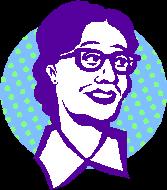Thursday, October 27, 2011
Tuesday, October 25, 2011
Sunday, October 9, 2011
Moroccan Jews Making Changes to America's Quintissential Ashkenazic Institution--Manishewitz
With Some Passing on Gefilte Fish, A New Lure: Fish 'Meatballs'
Manischewitz Takes Mediterranean Turn, Hoping to Spice Up Fare; 'What Is Cumin?'
By LUCETTE LAGNADO
For years, gefilte fish—plump little patties of minced fish—has been the Jewish holiday treat that some Jews love to hate.
These days, some say they've moved on. "Tradition is important but it needs updating—it doesn't have to be only about gefilte fish anymore," says Chany Konikov, a rabbi's wife in Southampton, N.Y., who also likes poached salmon and sushi.
Even Paul Bensabat wasn't that impressed when he tried it. "Boring," he says. "Pretty bland." And he's co-CEO of Manischewitz Co., one of the largest producers of gefilte fish. When Mr. Bensabat and partners took over the 123-year-old company, they decided to spice things up. One idea: Moroccan fish balls.
For more:With Some Passing on Gefilte Fish, Manischewitz Tries a New Mediterranean Lure - WSJ.com
Sunday, October 2, 2011
Awe-Inspiring Spectacle of the Yom Kippur Ritual of the Temple
Here are some sites from today's Etz Chayim sixth grade lesson on the awe-inspiring spectacle of the Yom Kippur Ritual of the Temple.
First we looked at http://www.sci.brooklyn.cuny.
Next, we looked at the Israel Museum in Jerusalem's Interactive Second Temple Model (http://www.english.imjnet.org.
We concluded by opening a discussion (which we will continue on Wednesday) about what the purposes of the Temple sacrifices were (referencing http://www.jewfaq.org/
First we looked at http://www.sci.brooklyn.cuny.
Next, we looked at the Israel Museum in Jerusalem's Interactive Second Temple Model (http://www.english.imjnet.org.
We concluded by opening a discussion (which we will continue on Wednesday) about what the purposes of the Temple sacrifices were (referencing http://www.jewfaq.org/
Labels:
Beit Hamiqdash,
bible,
High Holy Days,
history,
Israel,
korbanot,
sacrifices,
sixth grade,
Temple
Subscribe to:
Comments (Atom)

